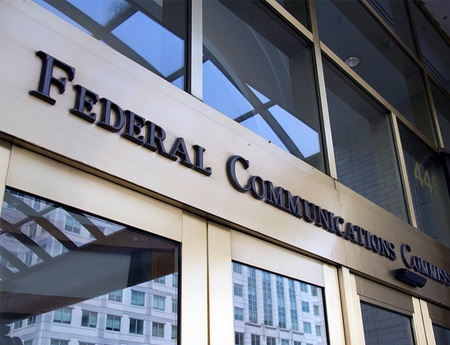FCC Extends Enhanced Transparency Waiver for Smaller ISPs

The smarter way to stay on top of broadcasting and cable industry. Sign up below
You are now subscribed
Your newsletter sign-up was successful
Smaller cable operators will not have to comply with new enhanced transparency reporting rules under the FCC's new Open Internet order for at least another year.
Small cable operators had hoped the FCC would make its temporary waiver permanent, but that could still happen.
In a bureau-level order, the Consumer and Governmental Affairs Bureau suggested that it would be premature to either grant the permanent extension or allow the waiver to sunset. It cited the fact that the FCC was still working through the Paperwork Reduction Act (PRA) impact estimates, saying after that extra year, the full commission would weigh in on what to do next.
The waiver was granted to systems with 100,000 or fewer subs due to the additional impact of such paperwork on systems without big pockets.
The bureau decided to extend the temporary waiver until Dec. 15, 2016, at which time it said the full commission could consider whether and how to further extend it. It confirmed that it thought 100,000 and fewer was the right cut-off for the waiver.
Technically, although the small business exemption would have sunset Dec. 15, currently neither large nor small ISPs are subject to enhanced disclosure because the FCC has yet to get Office of Management Budget sign-off on the paperwork requirements for the new regs.
But once that does clear OMB, the rules would take effect and if the exemption had sunset, the smaller ops would be liable for the new reporting requirements.
The smarter way to stay on top of broadcasting and cable industry. Sign up below
"The Consumer and Governmental Affairs Bureau (CGB) finds that at this time it cannot fully evaluate the impact of removing the temporary exemption for smaller broadband Internet access service providers from the enhancements to the Open Internet transparency rule previously adopted by the Commission in the 2015 Open Internet Order," the order said.
FCC Chairman Tom Wheeler said the decision "provides a reasonable period to assess the burden associated with the enhancements to the transparency rule, which will not be known until after the Paperwork Reduction Act process is completed. It would be premature to end the temporary exemption until the Bureau has had sufficient time to conduct a data-driven review of the burden through the PRA process.
“At the heart of this issue is the right of broadband customers, including the nearly 7 million customers of these exempt providers, to have access to essential information about their service—while at the same time ensuring the Bureau is able to conduct a thorough fact-based review," he said.
He pointed out that ISPs large and small are still subject to the existing transparency rules--part of the first Open Internet order that the court did not remand. "Next December, I will present to the full Commission for their decision the facts, which are being developed, so they may make an informed decision on the policy issues," he said.
Republican Commissioner Michael O'Rielly crticized both the decision and the way it was made.
"[T]emporarily extending the small broadband provider exemption is a monumental mistake in judgement and a missed opportunity to restore a bit of credibility and rationality," he said in a statement. "We all know that smaller providers never had the imaginary market power envisioned by the Commission, and they shouldn’t have to comply now or in the future with burdensome requirements that divert limited resources from broadband deployment and provide no real value to consumers. I am equally troubled that I was precluded from voting on this item as the majority of the Commission delegated it to the Bureau, reducing its own transparency and accountability."
Commissioner Mignon Clyburn suggested it was a necessary step toward a final determination of whether or not it should be permanent.
“In voting to approve the Open Internet Order, I advocated to exempt smaller providers from heightened transparency requirements because of my concerns that additional burdens would be placed on these entities," Clyburn said in a statement. "Before we make a final determination on whether this exemption should be permanent, the Commission needs more information and analysis that ought to include the resolution of the Paperwork Reduction Act (PRA) process. The effective date of the increased transparency rules remains pending while the Office of Management and Budget (OMB) assesses the burden as part of the PRA. OMB’s decision is a necessary input into the Commission’s analysis, therefore I believe it is appropriate to wait until that process is complete. Increased transparency is always beneficial and we have a duty to ensure that the benefits outweigh the burdens, particularly for our small businesses.”
Contributing editor John Eggerton has been an editor and/or writer on media regulation, legislation and policy for over four decades, including covering the FCC, FTC, Congress, the major media trade associations, and the federal courts. In addition to Multichannel News and Broadcasting + Cable, his work has appeared in Radio World, TV Technology, TV Fax, This Week in Consumer Electronics, Variety and the Encyclopedia Britannica.

